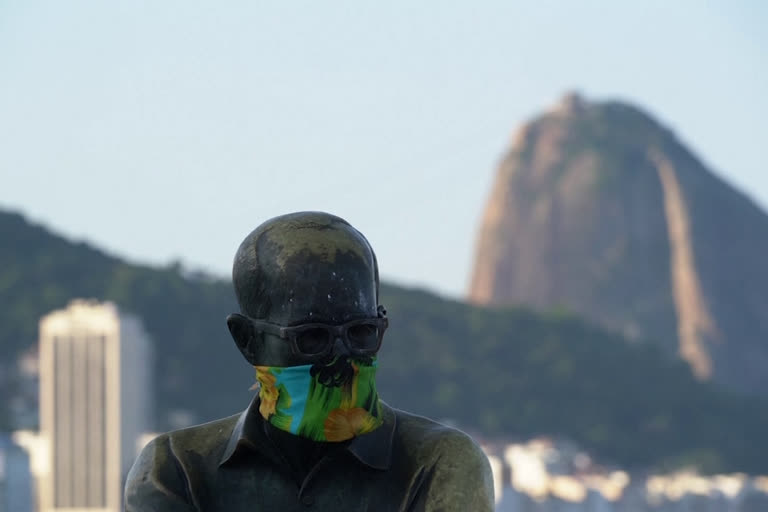Rio de Janeiro:Even the statues in Rio de Janeiro are fighting against the spread of the COVID-19.
Marking the first day of mandatory use of masks in the city, authorities decorated about 40 statues with masks, to convince residents to follow measures aimed at stemming the growing number of new coronavirus cases in the country.
Marking the first day of mandatory use of masks in Rio de Janeiro, authorities decorated about 40 statues with masks, to convince residents to follow measures amid COVID-19 pandemic. The statues of Brazilian singers, writers, athletes, social leaders and even presidents were with masks of all kinds and a sign alerting the population: "If you are out of home, you have to wear a mask. It's mandatory"
Even with the alert, dozens were in the street without any protection. The people were also going against the recommendations of the local authorities that demanded the population to remain at home, go out only if necessary, keep social distancing and avoid crowds. Elderly, young people and children were walking and making exercise on Copacabana beach.
Read Also:The first modern pandemic will define this era: Bill Gates
For Elizabeth, a 71 years old resident of the iconic beach, said that to wear masks will help to recover a little bit of freedom it will finish with the restrictions of don't go to the street, don't go out, go home! she said, however, that's not the idea of the authorities in Rio who will keep the restrictions at least until the end of April.
Brazilian President Jair Bolsonaro favors an unscientific approach in the fight against the virus and hopes social isolation measures end in the next few days. Governors and mayors are largely ignoring the advice of the far-right leader against the pandemic.
Brazil's health ministry confirmed 407 deaths due to the new coronavirus outbreak in the last 24 hours, the country's record in a day.
By Thursday Brazil registered 3313 victims and almost 50 thousand confirmed cases.
For most people, the new coronavirus causes mild or moderate symptoms, such as fever and cough that clear up in two to three weeks. For some, especially older adults and people with existing health problems, it can cause more severe illness including pneumonia and death.
(AP)
